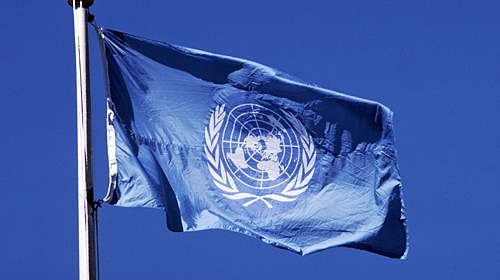New Government Report Reveals Over 200 Children Have Been Held in U.S. Custody in Afghanistan Since 2008


In recent years, several human rights bodies have faulted the U.S. for failing to live up to its international legal commitments to protect children in war zones in Iraq and Afghanistan. This week, the U.S. issued its to questions raised by the United Nations committee charged with implementing the international treaty on the rights of children in armed conflict – and it contains some disturbing news: “Over the last several years the United States has captured more than 200 individuals under the age of 18” and held them in military custody, the U.S. report said.
The treaty, formally known as the (OPAC), guarantees basic protections to children under 18 in armed conflicts, including while in military detention. The U.S. will undergo formal review by in January 2013. The committee had requested, among other things, that the U.S. provide details on the number of juveniles detained by U.S. military forces in Afghanistan, their treatment in detention, reasons for their detention, and the forms of rehabilitation and reintegration assistance available to them.
While the new U.S. submission was more forthcoming than previous responses to requests for information, such as an ACLU letter to Secretary of Defense Robert Gates in 2009 requesting details on juveniles in U.S. military custody, it sheds only a dim light on the treatment of children captured in Afghanistan. Although the U.S. will not provide specific information on individual detainees held in Afghanistan, citing confidentiality concerns, it did make public that the average age of these detainees is 16. This means it is highly likely that some children were as young as 14 or 13 years old when they were detained by U.S. forces. And, alarmingly, “for juveniles, the average length of stay [in U.S. military custody] has been approximately one year.”
According to the U.S., most of these children have since been released or transferred to Afghan custody. But the U.S. still has not provided any specific information about where these children were transferred to, or what forms of rehabilitation and reintegration assistance has been made available to them. Although this support is mandated under OPAC, that the U.S. has thus far failed to provide such assistance, let alone remedies for wrongful detention and abuse in U.S. custody.
In its 2008 submission to the committee, the U.S. government revealed it had detained nearly 2,500 youths in military custody overseas, mostly in Iraq. In its 2008 review of U.S. compliance with its treaty obligations, the committee expressed particular concern about the detention of children by U.S. military forces and the uncertain fate of children transferred to Iraqi and Afghan authorities.
In its list of issues for discussion during the U.S. review, the committee also raised questions about investigations of the torture and mistreatment of two children held at the American prisons at Guantánamo Bay and Bagram: Omar Khadr and Mohammad Jawad. It’s been well documented that during their detention, Khadr and Jawad were subjected to repeated torture and other mistreatment and to a systematic program of harsh and highly coercive interrogations designed to break them physically and mentally. Among other forms of abusive treatment, both teenagers were subjected to the military’s infamous “frequent flyer” program, a series of repeated moves from cell to cell resulting in extreme sleep deprivation. For instance, in May 2004, Guantánamo prison logs reveal Jawad was moved 112 times in just 14 days.
Omar Khadr, a Canadian citizen, was detained by U.S. forces in Afghanistan in 2002 when he was just 15 years old. Due to be transferred from Guantánamo Bay to Canada in 2010 under the terms of a plea deal, he was only transferred this past September. Although it is well documented that Khadr was abused during his detention at Bagram and Guantánamo, the U.S. report merely cited a military commission judge stating there was “no credible evidence of torture.”
The U.S. submission also ignores the committee’s question about remedies provided to Mohammad Jawad since his release after nearly seven years of illegal detention and torture following his arrest in Afghanistan at age 16 or 17. Jawad was released in August 2009 after a judge granted a habeas corpus petition brought by the ACLU and Jawad’s military lawyer. The judge ordered the Justice Department to release Jawad, finding there was no credible evidence to continue holding him. Prior to that ruling, a military judge had thrown out the bulk of the evidence against him, finding that it was obtained through torture. Despite his military defense attorney’s request for an investigation based on this evidence, Jawad has yet to receive any redress for his abuse and illegal detention.
The U.S. review by the Committee on the Rights of the Child this January will be the first U.S. treaty body review under the Obama administration, and is an opportunity for the administration to demonstrate not only in words but also in deeds its firm commitment to upholding human rights at home and abroad, particularly for the most vulnerable members in society: children.
Read more in the .
Learn more about human rights: Sign up for breaking news alerts,, and .

